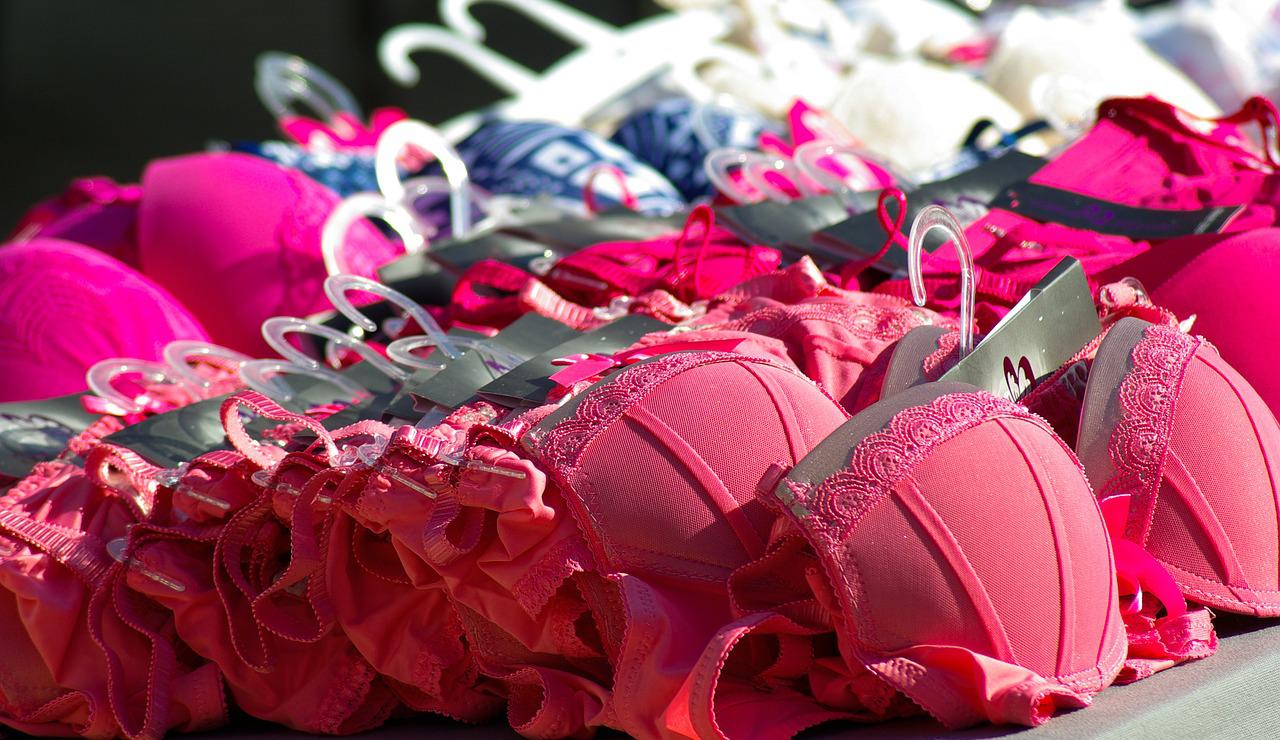
No woman ever thinks about the possibility of bras causing breast cancer. But is it possible that the wrong bra could cause breast cancer?
A myth has been circulating for a few decades about specific bras causing breast cancer in women. In the late 1990s, an article published in Scientific American claimed women are at a higher risk of getting breast cancer if they wear tight-fitted underwire bras.
The myth suggests that underwire bras put too much pressure on the chest and obstruct the lymphatic system and the lymph flow in the bloodstream. The restricted lymph flow is supposed to cause breast cancer because toxins accumulate in the breast tissue from the obstruction.
However, a 2014 study involving over 1,500 women disproved this theory. It found no credible evidence of a link between breast cancer and a woman's bra. Instead, the women who develop breast cancer have other risk factors unrelated to bras.
Numerous medical oncologists specializing in cancer have researched this claim to see if it could be true. But, once again, they found no evidence to support any claim about bras causing cancer.
Do you have questions about bras and whether they put you at risk of breast cancer? If so, you could visit Google and search the term medical centers near me in the search box. The top of the first results page should automatically give you a list of medical centers in or near your city.
What Does Cause Breast Cancer?
Okay, so now you know bras don't cause breast cancer. It doesn't matter how tight your bra is against your chest because it won't give you breast cancer.
So what does cause breast cancer? Below are the top 10 risk factors of breast cancer for women.
1) Hereditary
Did you know that up to 10% of all breast cancer cases are hereditary? Women who inherit specific gene mutations from one parent could develop breast cancer later in life.
For instance, the BRCA1 and BRCA2 genes repair damaged DNA by building proteins for it. Regular versions of these genes suppress cancerous tumors and prevent cancer growth. But if you develop gene mutations of BRCA1 or BRCA2, it could lead to abnormal cell growth in your breasts. That is when cancer forms.
2) Born Female
No one can control whether they are born male or female. Unfortunately, if you were born female, you automatically are at a higher risk of developing breast cancer.
Men can develop breast cancer, but those cases are extremely rare. Females are predominately more likely to get breast cancer.
3) Alcohol Consumption
Did you know drinking alcohol could increase your risk of developing breast cancer? The more alcohol you consume daily, the greater the risk of breast cancer.
One alcoholic drink daily means you are about 10% more likely to get breast cancer. Two to three drinks daily give you a 20% greater chance of breast cancer. It is also possible you could develop other types of cancers too.
There are many reasons why you shouldn't drink alcohol at all. But if you need to consume it for social or personal reasons, keep it to one alcoholic beverage per day max.
4) Birth Control
Certain types of birth control can increase your breast cancer risk, including oral contraceptives (birth control pills), progesterone shots, vaginal rings, skin patches, intrauterine devices, and implants.
The National Library of Medicine published a study showing that hormonal contraceptives increased breast cancer risk in women by 50%. Any birth control technique affecting bodily hormones is bound to increase cancer risk. Keep that in mind.
5) Old Age
Breast cancer can form in young and older women. However, statistics show that women who are 55 years of age or older have a much higher chance of developing breast cancer.
You cannot do anything about age-related risk factors. Just live a healthy life, and you may reduce the risk significantly.
6) Overweight
Women who are overweight or obese are at a much higher risk of breast cancer, especially if they are older and have gone through menopause.
Menopause causes a woman's ovaries to stop producing estrogen. Fat tissue stores higher levels of estrogen after menopause. So if a woman has excessive amounts of fatty tissue, they will have much higher estrogen levels than normal. That is how they will develop breast cancer.
7) Menopausal Hormone Therapy
Some women elect to receive menopausal hormone therapy to help them deal with the unwanted symptoms of menopause. The ultimate goal of this therapy is to prevent the development of osteoporosis, which is a bone-thinning disease often linked to menopausal symptoms.
Menopausal hormone therapy may involve administering estrogen and progesterone or only estrogen to the woman. Either way, higher estrogen levels increase a woman's breast cancer risk. So you might want to avoid hormonal therapy to treat menopausal symptoms because the long-term consequences could be devastating.
8) Sedentary Lifestyle
Do you live a sedentary lifestyle because of a desk job or lack of exercise? The American Cancer Society found evidence linking low physical activity to higher breast cancer risk. Women who have gone through menopause are at an even higher risk if they are physically inactive.
The recommended amount of exercise to reduce breast cancer risk is between 150 and 300 minutes of low-to-moderate intensity exercise per week. But, of course, increasing the intensity and exercising longer than 300 minutes per week will reduce the cancer risk even more.
9) Breast Implants
Some evidence suggests that breast implants may cause non-Hodgkin lymphoma in the scar tissue of breast implants. The risk is even higher if the breast implants have rougher and more textured surfaces.
If you are a woman who wants breast implants, at least choose the implants with smoother surfaces. Then your actual breast tissue won't incur too much impact or stress from the implants.
10) Race and Ethnicity
A woman's race and ethnicity seem to play a role in their level of breast cancer risk. For example, studies show that Caucasian women are more likely to develop breast cancer than African American women.
On the other hand, new studies show African American women are more likely to get cancer amongst all women under 40 years old. Hispanic and Asian women have a lower risk of breast cancer than Caucasian and African American women.
Can Breast Cancer Be Prevented?
Unfortunately, there is no way to prevent breast cancer altogether. So many factors contribute to the risk of breast cancer, and you cannot avoid most of them.
The best thing you can do is reduce the risk factors you have control over. The Mayo Clinic suggests the following ways to reduce breast cancer risk:
-
Reduce or eliminate alcohol consumption
-
Stay physically active with a minimum of 150 minutes of cardiovascular exercise weekly
-
Lose weight if you are overweight
-
Sustain a healthy weight for someone of your height, age, and gender
-
Breastfeed if you have a baby
-
Eat a more nutritious diet with nuts and olive oil
-
Stop taking hormonal therapies
-
Reduce or eliminate the use of birth control pills
-
Get regular breast cancer screenings
These are the best actions you can take to reduce breast cancer risk. Of course, you don't have control over your race, age, ethnicity, gender, or genetics. That is okay because reducing the other factors will go a long way in keeping you cancer-free.
Final Words
Do you think you have breast cancer? The Centers for Disease Control and Prevention has listed the following warning signs of breast cancer:
-
An unusual lump in the breast or armpit
-
Redness around the nipple
-
Unexplained decrease or increase in breast size
-
Pain in the chest or breast area
-
Blood discharged from the nipple
-
Breast skin irritation
-
Breast swelling or thickening
If your breasts are experiencing any of these symptoms, you should make an appointment to see a doctor immediately. Several treatments are available to remove or reduce cancerous tumor growth in the breasts. Then you can continue to receive ongoing therapies to keep the breast cancer in remission.
There is no cure for breast cancer. Once you have it, you must spend the rest of your life treating it to stay alive. That is why you should do everything possible to reduce your risk of breast cancer before it strikes.
Nicelocal.com can help you find a local medical center where you can receive a physical examination and further advice on how to lower your breast cancer risk. A doctor will recommend specific lifestyle changes according to the physical examination results.
As for the types of bras you wear, you don't have to give it a second thought. It has nothing to do with your breast cancer risk.
* This is a contributed article and this content does not necessarily represent the views of techtimes.com









